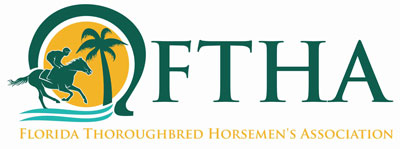November 21, 2011
“The Quarter Horse crowd claims that lowly barrel racing is just a cheaper vehicle for Gretna Racing to qualify for poker rooms and slot machines. Of course, the Thoroughbred folks said the same thing about Quarter Horse tracks.
They’re both right. Gambling conglomerates, if they could get slots and card rooms and table games, would happily reduce their parimutuels to hermit crab races.”
– columnist Fred Grimm, Miami Herald
The technicality of establishing some sort of parimutuel endeavor in order to legally justify the presence of casino gaming reached a new bend in the road recently when a north Florida county was granted a permit to offer wagering on barrel racing, which would set the stage for an accompanying casino, if approved by referendum next January.
There has been the predictable screeching from other horse interests accusing a certain barrel racing group of allowing themselves to be used by a casino company as a quick and dirty way to get a foot in the door. This would differ, of course, from the slow, stately march toward respectable casinos in places like New York, Pennsylvania, Delaware, Indiana, Iowa, and Louisiana, where slot machines now drive the engines for all manner of racing breeds.
But why not barrels, too? In the modern climate of slots first, questions later, how can anyone find anything inherently wrong with barrel racing as a betting proposition? They go ’round and ’round real fast and it’s over in a hurry. Sometimes a horse falls down, and sometimes a rider falls off. Sound familiar Thoroughbred fans? The riders even wear bright shirts and big buckles, and they are not as a rule encumbered by such nanny-state niceties as helmets and protective vests.
For the most part, every round of barrel racing is a variation on a very narrow theme – just as six-furlong races at Charles Town in November can start to look a lot alike – but the sport is intimate, and there’s always a chance one of the horses will go to buckjumping or sunfishing, then tear off for the barn while shedding his rider against the railing of a pipe-pen chute. Who wouldn’t want to bet on that?
It is perfectly understandable that representatives of the Florida Quarter Horse and Thoroughbred industries would be vocally opposed to the broadening parimutuel racing to a discipline more closely associated with the rodeo, just to secure a casino. What next – polo?
In case anyone has failed to notice, however, there persists a nagging but direct relationship between what is sown and what is reaped. Since the “slots as savior” ethic has become pervasive, no one should ever be shocked at what flows from the well. In granting parimutuel licenses to barrel racing groups, the Florida State Racing and Wagering Board contends it is acting in accordance with legislation that limits the expansion of casino-style gambling to sites that host some kind of horse racing. But as columnist Fred Grimm suggests, the goalposts are portable. If all it takes is a few bucks chucked into a legislator’s campaign fund to push through a bill – think of the jobs, the children, the troops!– the imagination reels at the possibilities for variations on casino enabling parimutuel competition. Could one of these news bulletins be far down the line?
ALBANY, N.Y. – The momentum of the casino-fueled New York Thoroughbred industry has been placed in jeopardy by the looming prospect of legalized betting on pigeon racing.
Pushed by the entrepreneurial avian group Wingnuts, a bill to broadly expand eligibility for a casino gambling license has been adopted by the New York Assembly on a vote of 140-4 (one abstention, three muggings), with the lone restriction that a casino site may not offer any sort of inter-species competition.
“We’re good with that,” said Terry Boyd Malloy, Wingnuts executive director and owner of Coops R Us supplies. “All we want is a chance to go big time with the birds.”
It is estimated that pigeon racing, a time-honored New York pastime, could generate as much as $750 million a year in mutuel handle, according to government estimates, and untold billions from anticipated pigeon-casino-related revenue.
“This will cut the you-know-whats off any gains horse racing has made,” said Tony Mandible, a gaming industry analyst. “Which would you rather clean up after?”
TALLAHASSEE, Fla. – The Florida Department of Rampant Development has green-lighted plans for the $385 million Vache de la Mer Gaming project to accommodate the proposed combination slots complex and adjacent parimutuel betting venue in the coastal community of Cape Dismal. In addition to the 5,000 slot machines earmarked for the project– which pencils out at a rate of 13 machines for every adult Cape Dismal resident – Vache de la Mer also will feature a million gallon “Aquarena” to present what is undoubtedly the nation’s first officially sanctioned program of parimutuel manatee racing.
“It’s more like manatee drifting,” said Baxter Flange, president of the Florida Sea Cowboys Association. “Don’t be looking for nothing like the razzle-dazzle of barrel racing, or bat burning. You can put down a bet on your favorite cow, go out for barbecue, spend an hour at the slots, then come on back and the race is just getting interesting. Anyways, it’s got a place in the local culture. And except for the smell, it’s good family fun.”
Local environmentalist Darcy Pescada led the unsuccessful opposition to the Vache de la Mer permitting process, citing concerns that the racing manatees would not be subject to the same rigorous drug testing programs in place to monitor Florida’s other parimutuel endeavors.
“They’re testing barrel racers, Thoroughbreds, Quarter Horses, greyhounds, flamingos, and alligators,” Pescada complained. “You’re telling me someone wouldn’t try to hop a manatee if they could impact the outcome of a betting race? We’re talking about human nature here.”
954.457.3516 | info@floridahorsemen.org



